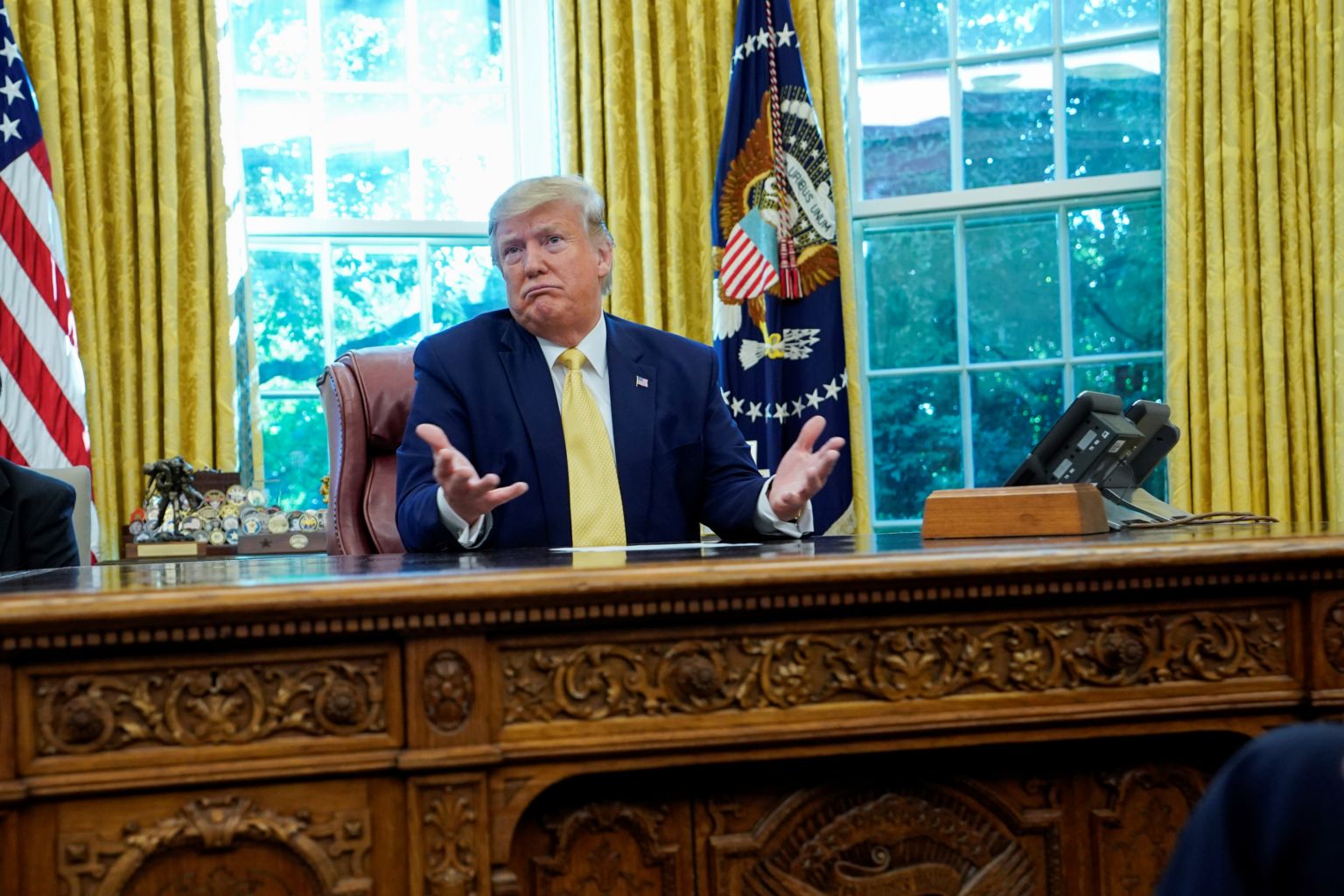Trump is an American President China deserves: New York Times columnist Thomas Friedman
Sign up now: Get ST's newsletters delivered to your inbox

China will be voting for Mr Donald Trump in 2020 because he will be incapable of building any alliance against it, said Mr Thomas Friedman.
PHOTO: REUTERS
SINGAPORE - Mr Donald Trump, who has led the United States into a 20-month-long trade war with China, is the American President that China deserves, says New York Times foreign affairs columnist and best-selling writer Thomas Friedman.
Better known for his sharp criticism of the Trump administration, Mr Friedman startled some in the audience at a public lecture when he said he would come down on the side of the president on the testiest dimension of US-China ties.
"I've supported Trump on the China trade issue," said Mr Friedman during the lecture organised by the Lee Kuan Yew School of Public Policy on Thursday (Nov 21). "It's not a natural thing for me."
"My view is that Donald Trump is not the American president that America deserves but he is the American president China deserves."
The lecture, part of the school's four-day Festival of Ideas that kicked off on Wednesday, features over 60 leaders from academia as well as public and private sectors who discuss current public policy challenges.
The roiling of relations between the world's biggest economies has choked growth and stoked concern across the world, but Mr Friedman holds that Mr Trump was right to take on China because it did not play fair.
"China grew from poverty to middle income over last 30 years by using a three-silo strategy," he said.
"The first silo was hard work, delayed gratification, national pulling together, smart investments in infrastructure and education."
"Silo No. 2 was stealing other people's intellectual property, forced technology transfer and non-compliance with WTO rules."
"Silo No. 3 was the US-Pacific fleet. It was the presence of the US Pacific Fleet that allowed China to economically dominate all its neighbours without them worrying that they were being geo-politically dominated. That allowed China to extend its influence."
The narrative, acknowledged by many other analysts, paved the way for China to emerge as a major power rivalling the US.
But now, said Mr Friedman, China wants to transform from a middle-income to a rich economy by dominating the high-tech industry. "If we let China use that same three-silo strategy, we would be out of our minds," he said.
"Donald Trump did not come from outer space on this issue. He is acting out of very rational interests."
But he failed to latch on to the winning argument in the fight, Mr Friedman pointed out.
"We had the chance to make this the world versus China on what are right trade rules for the 21st century," he said.
Instead, Mr Trump pulled the US out of what was to be the world's largest trade agreement, the Trans-Pacific Partnership. He compounded the error when he alienated the European Union by slapping tariffs on its steel and aluminium exports to the US instead of making common cause with them.
On top of these, Mr Trump resorted to brinksmanship, initiating a tit-for-tat tariff war with President Xi Jinping.
In a conversation that followed Mr Friedman's lecture, former diplomat Kishore Mahbubani, a Distinguished Fellow at Asia Research Institute, noted that Mr Trump's hawkish policies had cemented Mr Xi's popularity in China.
Mr Friedman suggested that had Mr Trump styled the trade war as a global push to reform terms of trade, it could have mobilised reformers inside China.
"Making it Trump versus Xi, he forced every reformer inside China to wave the nationalist flag."
Paradoxically, both agreed, China would like to see Mr Trump re-elected in next year's presidential elections.
China will be voting for Mr Trump in 2020 because he will be incapable of building any alliance against it, said Mr Friedman. "For the simple reason that as long as Trump is president, he will keep America in turmoil."
But Mr Xi did not play the game well either, said Mr Friedman, noting that China is more "closed" than five years ago and is in a sharpening tech war with the US.
"Just one time, I'd like to hear China say we're gonna do this because it would be good for the world. We're gonna put in intellectual property laws which young Chinese innovators need."
He also remarked on a hardening in China's stance, recalling a conversation with an official in Beijing who remarked that the US was "too late" and China was "too big" in the tussle.
There's a lot of rattling of cages going on, noted Mr Friedman, but the relationship is unusual.
"We are in a totally interdependent relationship with China, one that has been mutually beneficial."
"Our relationship exists in multiple states at the same time. We are competitors, mutual suppliers, sources of research and intellectual rigour for each other... the cost of the mortgage of my house is impacted by China's buying of US Treasury Bills. We are rivals, and in some cases, we are enemies," said Mr Friedman.
"The challenge is how to do all this at the same time, there has never been this kind of relationship between a rising power and an incumbent. It's going to take great sophistication."
"There is no big problem that can be addressed - whether it's cybercrime or climate - without US-China collaboration. "
Mr Friedman, the winner of three Pulitzer prizes for commentary and reporting, dwelt in his lecture on megatrends in the world, spurred by exponential changes in technology, globalisation and climate change. His latest book, Thank You For Being Late: An Optimist's Guide To Thriving In The Age of Accelerations, examines how these forces are reshaping the world's politics, societies, workplaces and geopolitics.


